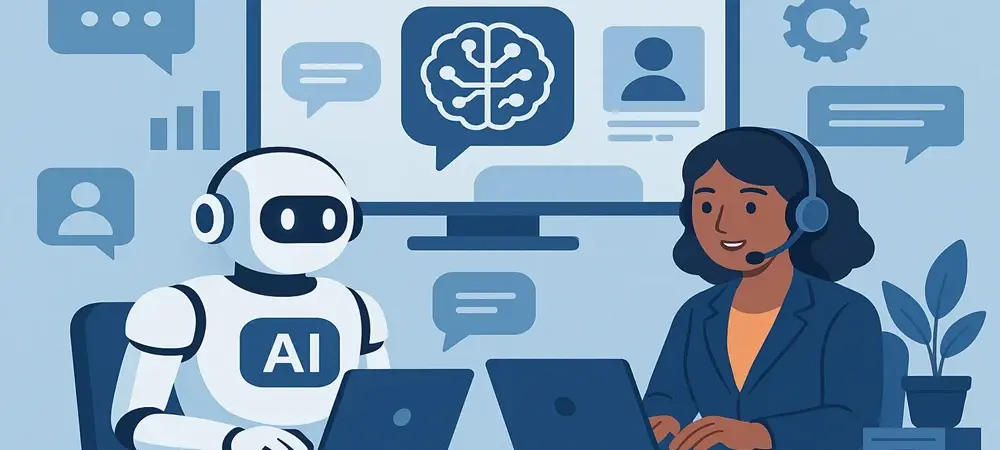In a significant development poised to transform the landscape of enterprise AI applications, OpenAI has introduced a new Customer Service Agent framework. At the core of this initiative is an open-source demonstration aimed at equipping developers with robust resources to craft intelligent AI agents powered by the Agents SDK. This framework marks a pivotal expansion in OpenAI’s enterprise strategy, transitioning conversational AI from simplistic, single-turn dialogues to advanced autonomous systems with context awareness and task-routing capabilities. The introduction of this framework is a testament to OpenAI’s commitment to practicalizing AI deployment across diverse enterprise environments, offering a pathway for companies to enhance customer service and operational efficiency through AI.
Strategic Initiative to Transform AI Agent Deployment
OpenAI’s Customer Service Agent framework represents a strategic initiative designed to expand the deployment of AI agents across various enterprise use cases. The open-source release serves dual purposes: offering comprehensive insights and tools to developers for crafting domain-specific AI agents while highlighting practical applications in real-world scenarios. An exemplar of this initiative is the demonstration of an AI agent tailored for airline support services, capable of tasks like seat booking, flight status inquiries, cancellations, and managing frequently asked questions. This demo is relevant for enterprises seeking to leverage AI for streamlined operations and improved customer interactions. The strategic deployment illustrates how AI agents are built to handle specific roles within defined safety and relevance parameters, crucial for maintaining predictable and secure operations.
In tandem with its initiative, OpenAI underscores the importance of operational safety and relevance. The Customer Service Agent demo emphasizes the incorporation of guardrails such as the Relevance Guardrail, ensuring responses remain pertinent to the queries, and the Jailbreak Guardrail, safeguarding against unauthorized prompt manipulations. These measures reflect OpenAI’s commitment to ensuring AI agents operate responsibly and within established boundaries, an essential requirement for their adoption on a wide scale in enterprise settings. Through this strategic initiative, OpenAI offers a paradigm for deploying AI agents capable of intelligent task handling and interaction, aligning with enterprise-centric goals of efficiency and reliability.
Enhancing AI Agent Capabilities with Agent SDK
The capabilities of OpenAI’s Customer Service Agent framework are further accentuated through the integration of the Agents SDK, which provides developers with a toolkit to build responsive, context-aware AI agents. Central to this technology is the ability to transition past simple dialogue systems to create multifaceted agents capable of understanding and executing complex tasks autonomously. The demonstration of these capabilities in real-world scenarios, such as those within the airline industry, highlights the potential for strategic applications across other sectors requiring sophisticated customer interaction management. OpenAI’s commitment to equipping enterprises with the tools needed to deploy such agents is evident in the recently published “A Practical Guide to Building Agents.” This guide acts as a foundational resource for developers, elucidating essential components such as model selection, tool integration, crafting instructions, and implementing safety protocols. Additionally, it provides strategic approaches for orchestrating interactions within single-agent and multi-agent systems. OpenAI’s accumulated experience in overseeing large-scale agent deployments is reflected in these comprehensive resources, promoting a structured, phased build-out of increasingly complex agent functionalities that adhere to a modular architecture.
Open-Source Strategy and Developer Empowerment
In an effort to democratize access to AI technology and foster innovation, OpenAI has adopted an open-source strategy, releasing code under a permissive MIT License. This decision empowers developers across various industries to customize and implement the technology for their specific commercial or experimental objectives, thereby lowering barriers to entry. Such accessibility allows the broader developer community to take advantage of OpenAI’s advancements, tailoring solutions to meet unique industry demands, thus broadening the scope of AI applications beyond customer service to include diverse operational roles.
The technical makeup of the demonstration, featuring a Python backend complemented by a Next.js frontend, exemplifies a robust combination of backend processing capacity and real-time frontend visualization. This architecture enables developers to not only oversee but also improve the efficiency of their AI systems through seamless interactions, emphasizing the importance of a well-integrated user interface for effective deployment. By presenting these tools and solutions, OpenAI enables developers to craft more comprehensive and efficient AI systems, contributing to the optimization of enterprise processes.
Future of AI in Enterprise Workflows
OpenAI’s Customer Service Agent framework is a strategic plan aimed at widening the application of AI agents for various enterprise needs. By releasing the framework as open-source, two main goals are achieved: empowering developers with the tools and knowledge to create tailored AI agents and showcasing practical real-world uses. A prime example is an AI agent designed for airline support, proficient in tasks such as seat booking, flight status inquiries, cancellations, and FAQs. This demo serves enterprises eager to harness AI for more efficient operations and enhanced customer interactions. It demonstrates how AI agents are crafted to perform specific tasks within strict safety and relevance parameters, which are crucial for ensuring reliable and secure operations.
Alongside this, OpenAI stresses the necessity of maintaining operational safety and relevance. The Customer Service Agent demo integrates safeguards like the Relevance and Jailbreak Guardrails, which ensure responses are pertinent and shield against unauthorized use. These safeguards are vital for the responsible, widespread adoption of AI agents across enterprises. OpenAI’s initiative is a blueprint for deploying AI agents that handle tasks intelligently and align with goals like efficiency and dependability.

